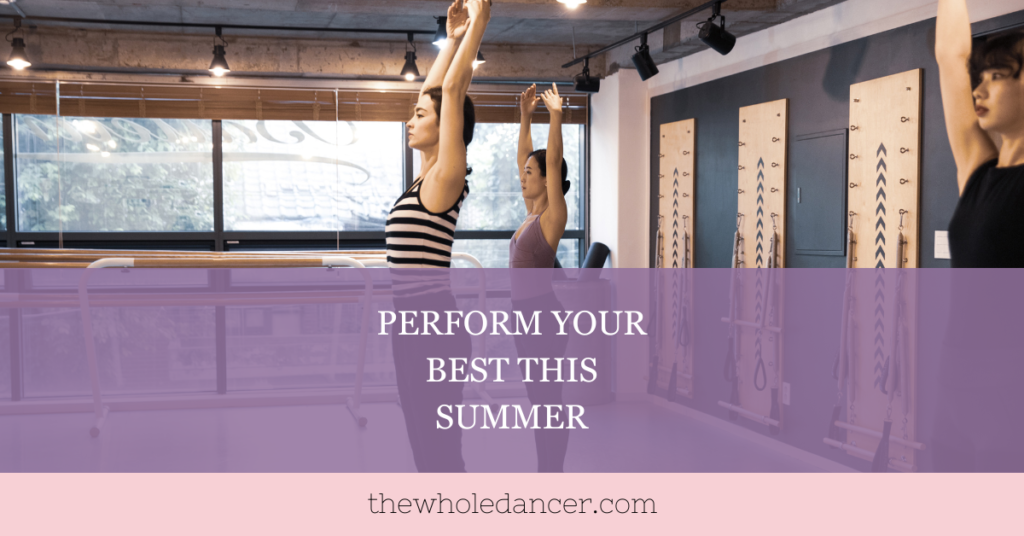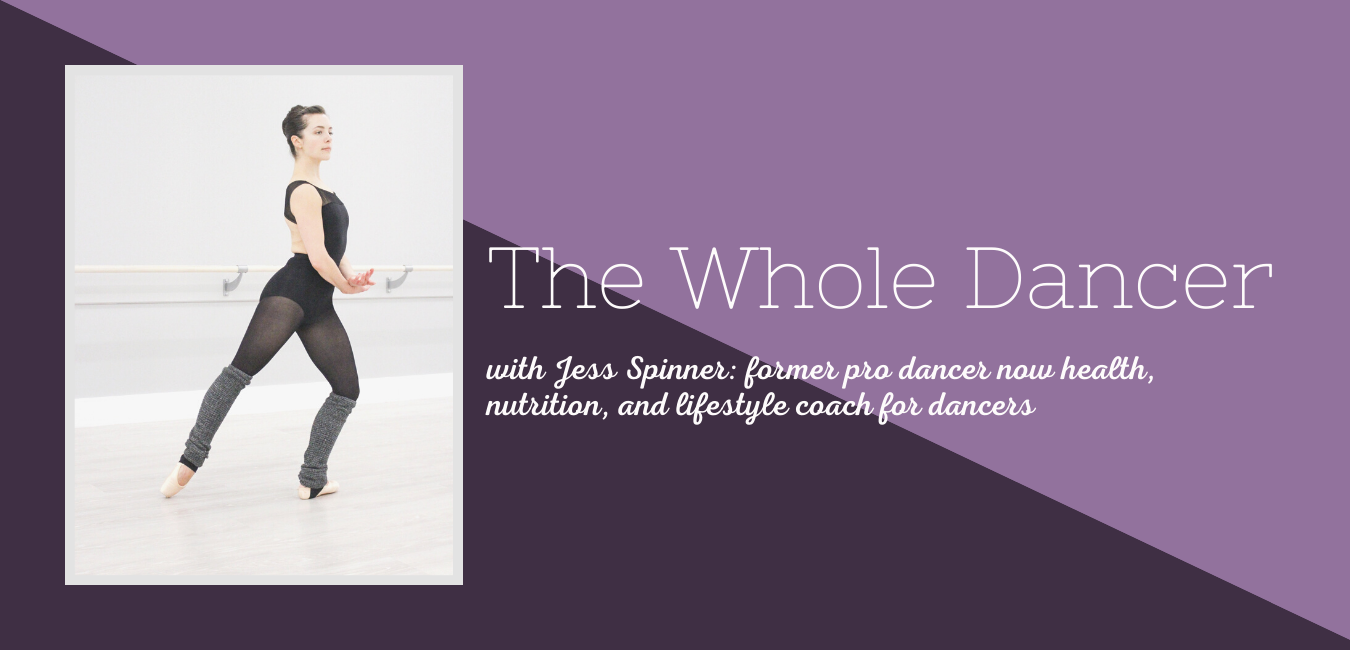If you’re headed to a summer intensive soon, you might have high hopes for a pre-professional training spot or an entry level job with the associated professional company.
The practice of companies inviting dancers to attend a summer intensive for these considerations has been around for a while. I know this has been going on for at least 15 years because it was 2007 when I had the opportunity to attend Orlando Ballet summer intensive on scholarship to be considered for a 2nd company position. I had just graduated from Butler University with a BS in Dance and Arts Administration and was hoping to start my professional career.
Getting a job through Orlando Ballet’s Summer Intensive.
The experience of an extended audition via summer intensive was supremely stressful for me. I didn’t have any other offers, and if it didn’t work out in Orlando I didn’t know what I would do. I also had few coping mechanisms to manage the stress, and my food and body relationship was extremely negative.
In the first week of the intensive, I got injured. A partner was working on a lift with me and the pressure of his hands on my ribs bruised them. This was likely caused, at least in part, by my chronic underfueling in the years leading up to the intensive. I could no longer participate fully in the intensive, so any hope of a job was gone.
Whether you’re being considered for a job this summer or you’d like to make connections for possible future jobs, strengthening your mindset can only help you. According to the Ohio Center for Sports Psychology, the following nine mental skills are required for you to reach your highest level of performance.

1. Choose and maintain positive attitudes.
In dance companies and schools, there are usually some people who default to more negative attitudes. This is natural for some people, but it’s important to stay away from that influence. Staying positive even in the times when you’re not cast how you’d like or when you’re not getting the attention you desire (more on that in #2) is essential for performance.
Your mind is powerful. If you stay stuck in all that you’re unhappy with, it will drag you down and lead to poor performance. Keep your head up and surround yourself with positive people in order to move forward consistently.
2. Maintain a high level of self–motivation.
Dancers easily fall into a head space where they need validation from teachers. This happens naturally as students—you’re young and looking for approval. However, once you’re dancing professionally, it becomes clear that it’s up to you to maintain your technique and push yourself to work.
It varies from company to company, but at the professional level, artistic staff tends to be much more hands off than when you’re a student. They expect you to bring your A–game and push through without their constant singing of praises. This is where self-motivation is essential.
3. Set high, realistic goals.
Goal-setting is something you’ve heard about at The Whole Dancer since its start. It is so important, and it shocks me that it’s not a bigger part of dancer training! You’ve got to set the next big goal to reach the next level. When dancers work with me one-on-one, we consider not only their goals for their coaching program but also bigger-picture dance, body, and mindset goals.
4. Deal effectively with people.
Whether you’re dancing in the corps de ballet or as a soloist or principal dancer, you’ve got to be able to deal with those around you. It’s somewhat more obvious as a corps dancer. You’ve got to be able to communicate with your fellow dancers to create a cohesive and uniform look as a group. That’s no easy feat!
When you’re dancing solo, you might think there’s no necessity to deal with people. To the contrary, you’ve got to have a clear communication style so you’re able to work with whomever comes in as a partner or répétiteur.
5. Use positive self–talk.
This is another big focus of the coaching programs here at The Whole Dancer. When that little voice in your head is constantly dragging you down, how do you think your body is going to react?
When you’re able to focus on the positive, see what is working, and lift yourself up through the struggle, you’re going to find much greater success than if you feed into your inner critic. Give that nasty critic a name and tell them to get lost!
6. Employ positive mental imagery.
Visualize. Imagine the positive outcome you’d like. See the perfect double pirouette you’re capable of before you even start dancing. This is going to be really helpful during summer intensives as you’re surrounded by fresh faces and new competition.
When I was dancing professionally as an angel in Beauty and The Beast, there was a particularly challenging series of turns. I labeled myself “not a turner” and struggled through rehearsals. Guess what happened in the performances…I fell out of those turns each and every time. I’d be so curious to go back, practice visualization, and possibly experience a different outcome.
7. Manage nerves and anxiety effectively.
Whether you do some breathing exercises, journal out the jitters, or give yourself a pep talk, you’ve got to find a way to move through your nerves. It can be helpful to simply accept that anxiety is part of performing for most dancers.
The truth is, some dancers struggle with anxiety in performance more when they’re in the studio vs. on stage. When there’s more distance between you and your artistic director, you feel more at ease—compared to dancing in the studio where you see their every look and whisper.
8. Manage emotions effectively.
When you get to the studio, turn everything else off. This will be good practice for managing emotions when you need to perform onstage. Let your time dancing be the time to release any stress you’re feeling. If you can’t shut them off, channel them into your performance and let it elevate what you bring to the stage (or the studio)!
9. Maintain concentration.
Find your focus. Audiences are great, but you’ve got to be able to mostly tune them out and focus in on the dancing. If you’re dancing in the corps de ballet, use your fellow dancers to stay engaged in your character. Dancers have the added benefit of music to help facilitate concentration, so use it! Allow the music and musicality of the choreography to keep you home in on what you plan to accomplish.
How-to start practicing these mental skills this summer:
Make it a goal to incorporate one new mental skill each week. Write yourself some reminders about what the skill is and some ways to bring it into each day. At the end of the day, do some journaling and reflect on the impact of each skill.
If you’re ready to gain some strategic insights into how to improve your performance through mindset, food relationship, and an improved body image, reach out. Click here to schedule a complimentary coaching call.
